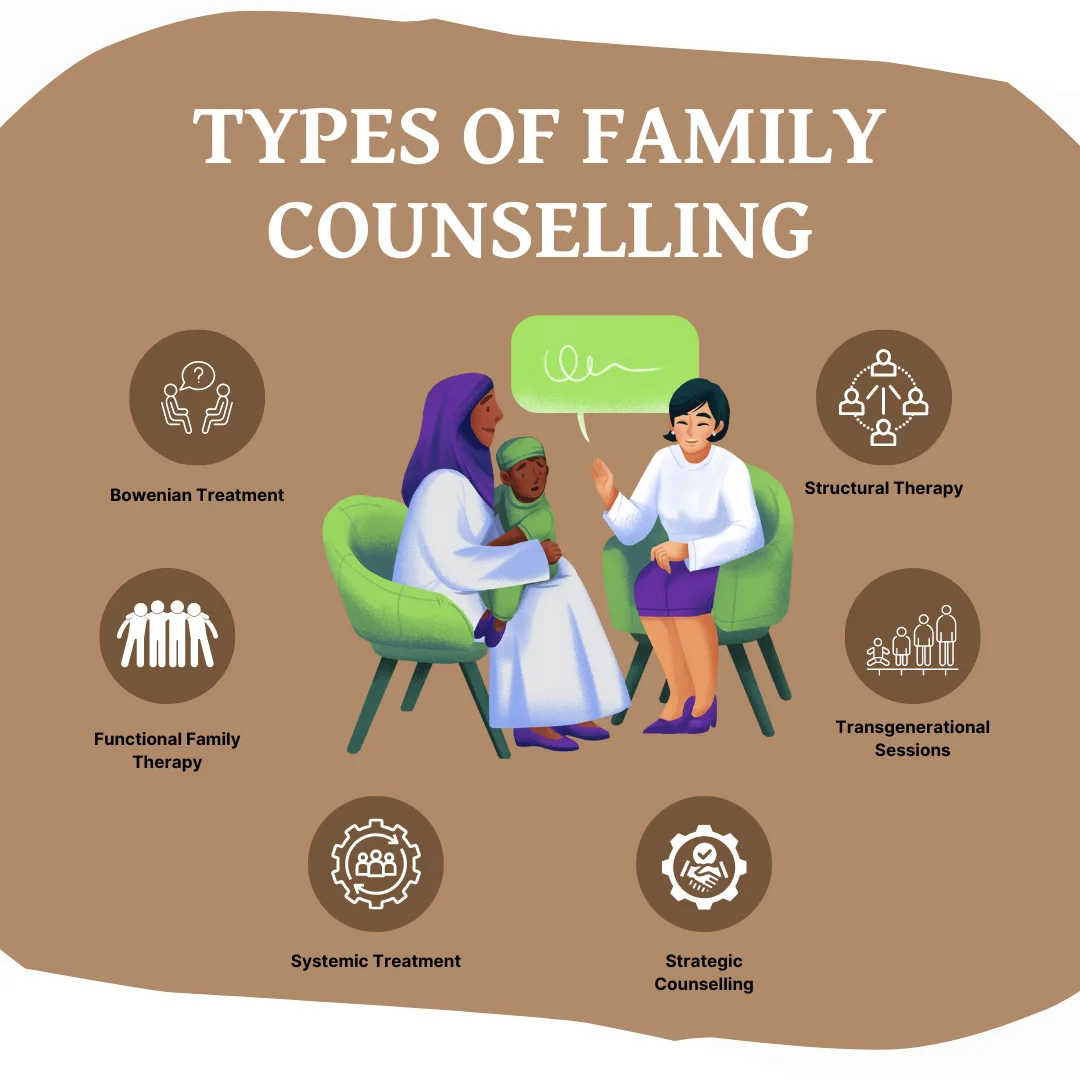A Comprehensive Overview to the Numerous Kinds of Therapy and Their Impact
Counseling encompasses a variety of healing methods, each created to fulfill unique mental health and wellness demands. From the structured techniques of Cognitive-Behavioral Therapy to the empathetic nature of Person-Centered Therapy, these techniques supply distinctive pathways to personal growth. Household therapy and Dialectical Actions Treatment give additional frameworks for healing, while team therapy cultivates community support. Understanding these diverse techniques can illuminate their profound influence on private well-being. What continues to be to be discovered are the ins and outs of each approach.

Comprehending Cognitive-Behavioral Therapy (CBT)
Although several therapeutic approaches exist, Cognitive-Behavioral Therapy (CBT) stands apart because of its structured, goal-oriented nature. This type of therapy is based on the facility that ideas, feelings, and habits are interconnected, and by altering negative thought patterns, people can alter their emotional actions and activities. CBT utilizes different methods, such as cognitive restructuring, which assists clients identify and challenge altered ideas. Behavior activation motivates interaction in satisfying tasks to battle clinical depression.
Typically, CBT is a short-term therapy, usually enduring in between 12 to 20 sessions, making it easily accessible for those seeking quick outcomes. Its performance has been well-documented in treating anxiety disorders, clinical depression, and various other mental health concerns. The therapist's role is to lead customers with exercises and research projects, fostering self-awareness and advertising long-lasting coping techniques. This practical technique equips people to take control of their psychological well-being, inevitably resulting in improved life satisfaction.
Discovering Person-Centered Therapy
Person-Centered Therapy, developed by Carl Rogers, offers a different approach to Cognitive-Behavioral Treatment by stressing the customer's subjective experience. This restorative design prioritizes the person's viewpoint, cultivating an atmosphere of empathy, unconditional favorable respect, and credibility. By permitting customers to explore their feelings and thoughts without judgment, specialists help with individual growth and self-discovery.
The core tenet of Person-Centered Therapy is the idea that individuals possess the inherent capability for self-healing and individual advancement. In this setup, the specialist functions as an encouraging guide rather than a regulation authority, encouraging customers to organize their own trip. This method is particularly reliable for those facing problems such as reduced self-confidence, anxiety, or clinical depression, as it equips them to confront and recognize their emotions. Inevitably, Person-Centered Therapy grows a strong restorative alliance, cultivating count on and visibility necessary for significant adjustment.
The Function of Family Members Therapy in Recovery
Family treatment serves as a crucial component in the healing procedure for individuals and their relationships. This therapeutic method concentrates on enhancing interaction, settling problems, and cultivating much deeper links amongst household participants. By resolving dysfunctional dynamics, family therapy urges each member to reveal their ideas and sensations in a safe atmosphere, advertising understanding and compassion.

The impact of household therapy prolongs past the sessions, as enhanced relationships can lead to boosted psychological wellness for all entailed. In general, household therapy plays a vital duty in recovery by fostering unity, resilience, and mutual support amongst relative, inevitably assisting them toward a healthier, much more fulfilling life together.
Unpacking Dialectical Behavior Modification (DBT)
Structure on the structure of restorative techniques that improve emotional well-being, Dialectical Behavior modification (DBT) offers a structured structure for people dealing with intense emotions and behavior obstacles. Created by Marsha Linehan, DBT integrates cognitive-behavioral methods with mindfulness practices, intending to assist clients manage frustrating sensations and enhance interpersonal performance.
The treatment is particularly useful for those diagnosed with Borderline Personality Problem however is also relevant to an array of other mental health and wellness concerns. virtual therapy. DBT contains specific therapy sessions and abilities training teams, concentrating on 4 vital ability collections: mindfulness, distress resistance, feeling regulation, and interpersonal efficiency
The Benefits of Group Coaching Sessions
While individual treatment supplies important understandings, team therapy sessions supply special benefits that can considerably boost the restorative experience. One crucial advantage is the sense of neighborhood that arises among individuals. People commonly discover comfort in sharing their experiences with others encountering comparable difficulties, cultivating a helpful environment that lowers feelings of isolation.
Group sessions motivate varied viewpoints, permitting participants to discover from each various other's coping strategies and insights. This cumulative knowledge can cause enhanced analytical abilities and a broader understanding of personal concerns.
Additionally, team counseling commonly advertises liability, as members encourage one an additional to pursue their objectives and stick to their commitments. Ultimately, the cost-effectiveness of team therapy makes it an easily accessible alternative for many individuals looking for support. In general, the collaborative nature of group counseling sessions can substantially improve the healing journey.
Regularly Asked Inquiries
What Certifications Do Specialists Required to Exercise Counseling?
Specialists typically call for a relevant level in psychology or counseling, along with monitored medical experience. Additionally, they need to obtain suitable licensure or qualification to practice legally, guaranteeing adherence to expert criteria and moral standards.
Just how Do I Select the Right Kind of Treatment for Me?
Picking the best type of treatment includes examining personal demands, discovering different strategies, considering specialist specialties, and seeking suggestions. Understanding specific goals and preferences can substantially improve the performance and contentment of the restorative experience.

Are Online Therapy Sessions as Effective as In-Person Ones?
The effectiveness of on-line therapy sessions compared to in-person ones usually depends on individual preferences and scenarios. Research shows that both methods can produce positive end results, though some may locate better comfort in face-to-face interactions.
How Much Time Does Therapy Normally Last?

What Should I Anticipate Throughout My First Therapy Session?
Throughout the initial counseling session, clients can anticipate an intro, discussion of their issues, establishment of goals, and a review of the counseling process - check here couples counselling. This initial conference intends to build relationship and assurance convenience